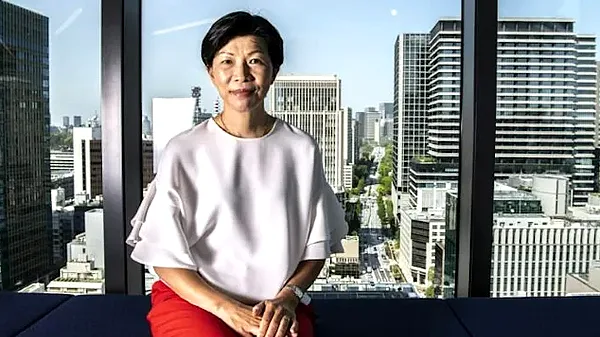
TOKYO: Three million women joined Japan’s workforce in the past decade, and it’s at least partly thanks to top executive Kathy Matsui, who coined the “womenomics” catchphrase that inspired government policy. But with many women holding precarious part-time jobs, often in sectors hit hard by Covid-19, she says the world’s third largest economy must try harder to tap underused talent. That means chipping away at managers’ sexist attitudes and challenging Japan’s long-hours work culture, as well as encouraging start-ups with “more diverse founders”. “We have a very low ratio of female entrepreneurs in this country,” Matsui, the former vice-president of US investment bank Goldman Sachs in Japan, told AFP. “But if you want to be driving your own destiny, becoming an entrepreneur is one of the best ways to do that.” Matsui, 57, is one of the few women at the top of Japan’s male-dominated business world, as co-director of a firm founded last year that invests in ethically minded young companies. The Japanese-American was at Goldman Sachs in 1999 when she began publishing studies on the economic benefits of boosting female participation in the Japanese workforce, which she dubbed “womenomics”. To her surprise, the ideas were adopted by former prime minister Shinzo Abe in 2012 as part of his signature plan to revive the ailing Japanese economy. Since then, the proportion of women in Japan who work has risen from 60 percent to over 70 percent, equivalent to around three million people, according to OECD figures. But even now, only 15 percent of managers at Japanese companies are women, compared to around 40 percent in the United States. Pandemic problems “Trying to change the mindset and behavior of very established organizations… is not impossible, but it just takes a long time,” unlike start-ups which can be more flexible, Matsui said. Recent progress has been so slow that Japan’s government was forced to postpone its 30-percent target for women in management positions by a whole decade in 2020. And like in other countries, the Covid crisis has not helped. Worldwide, women were more likely than men to report a loss of employment in the pandemic’s first 18 months, according to a University of Washington study published this year in the Lancet that analyzed data from 193 countries. In Japan, many women juggle looking after children or elderly relatives while working part-time, often in the Covid-hit service industries, Matsui said. She thinks helping women into full-time roles where they are more likely to be promoted is not just the government’s responsibility, but also that of managers. Evaluations should be “much more focused on output and performance, as opposed to the time factor”, and managers should undergo training to tackle prejudices. “A lot of times I come across women who are passed over for promotion, because they just got married” and their boss doesn’t want to “risk” them taking maternity leave, she said. And it’s urgent — as Japan’s rapidly ageing population causes its workforce to shrink, “the fastest thing you can […]
2年前
更多womenomics